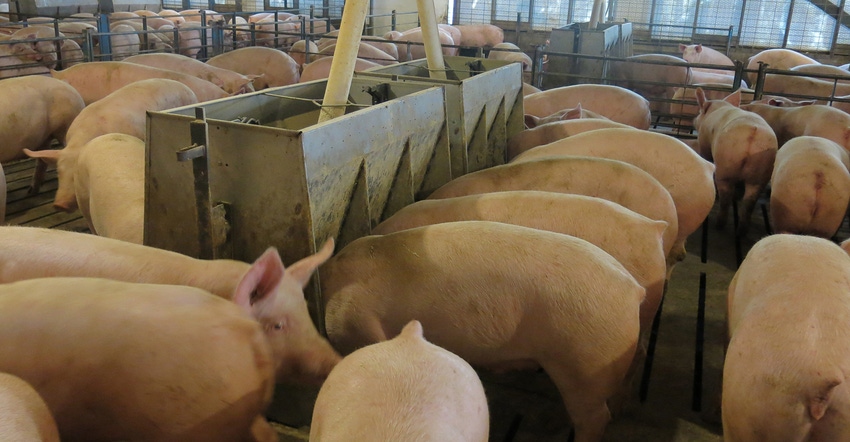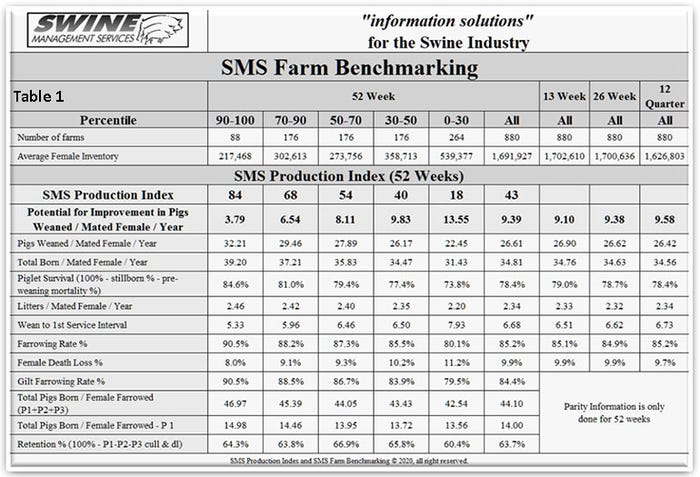Remember that pork is the No. 1 protein source for the world. Someone is going to be producing pork. Will it be you?

In the last few weeks pork production has taken many turns and twists. We have a lot of empathy for the producers and what they are going through. There are so many unknowns every day about what is going on, it is impossible to plan and think about the future. We have been involved with several producers the last few months helping them walk through where they are at and working on a plan.
We have had producers thank us for helping them in improving production numbers for the last few years now tell us they have been unable to sell those extra 500 pigs per week above my contract. Now how do I stay in business and produce fewer pigs?
We have been in conversations with lenders and they are seeing some producers getting out because of the uncertainty of the future of pig production.
There have been some creative producers using social media to sell pigs one to 100 at a time to unknown people wanting meat and who are willing to come and get the pigs and do their own slaughtering. One producer sold 170 pigs and another 2,600 pigs. There was a lot of inconvenience of bringing one or more pigs at time out to the road to meet the buyers, but they did that versus having to euthanize the pigs they had spent six months raising.
We did come up with some recommendations for getting through this period to lower production and try to lower costs.
Euthanize surplus pigs at birth that do not weigh at least 2 pounds (900 grams)
During lactation, do not treat piglets with health issue such as swollen toes, broken joints, unthrifty and euthanize some as you find them
Make a list of piglet health issues and whether to treat or euthanize
At weaning time euthanize any small, fuzzy or unthrifty pigs so as to only sell or take to finishing the highest quality pigs
Do not rebreed any returns and cull as soon as possible
At breeding time review history cards of sows and cull more older parity females especially if they have had breeding problems, lower total born or low weaning average
If you consider lowering weekly breeding and farrowing targets remember that an empty farrowing crate raises the cost to raise a pig
If you increase the number of pigs you are euthanizing, review the process with the crew and if someone has an issue with the process assign them duties other than euthanizing pigs
When will the issue of packer capacity be over? That is uncertain and hard to plan for. Will there still be a demand for pork? I feel demand will be increasing as pork producers and packers throughout the world are struggling with slaughter issues. Remember that pork is the No. 1 protein source for the world. Someone is going to be producing pork, and will it be you?

Table 1 provides the 52-week rolling averages for 11 production numbers represented in the Swine Management Services Production Index. The numbers are separated by 90-100%, 70-90%, 50-70%, 30-50% and 0-30% groups. We also include the 13-week, 26-week and 12-quarter averages. These numbers represent what we feel are the key production numbers to look at to evaluate the farm's performance.
At SMS, our mission statement is to provide "Information solutions for the swine industry." We feel with the creation of different SMS Benchmarking databases for all production areas we now have more detailed information to share with the swine industry. If your farm would like to be part of the SMS Benchmarking databases, or if you have suggestions on production areas to write columns about, e-mail Mark Rix, Ron Ketchem or Connor Sharp. We enjoy being a part of National Hog Farmer's NHF Daily team. Previous columns can be found at NationalHogFarmer.com.
Preparing for the next phase
Swine Management Services is beginning steps for the next phase for the future retirement of Mark Rix and Ron Ketchem. In the first step of staffing SMS with new hires comes in the form of Jeffry Connor Sharp, who goes by Connor. He started June 1, and will be working out of the Fremont, Neb., office.

Sharp is an Omaha, Neb., native, and joins the SMS/MetaFarms team after having spent the past five years with Standard Nutrition Services — a livestock nutrition and production management company based in Omaha. Serving in a variety of roles — from slat-level to boardroom-level — Sharp has a unique perspective on the opportunities and challenges facing the swine industry. Agriculture is near and dear to his heart, as his family and relatives are deeply rooted in Nebraska farming and livestock and have been for generations.
Prior to finding his passion for swine, Sharp spent five-plus years in the financial advisory industry. This background provides a valuable depth of knowledge and understanding of factors that drive corporate decisions within a business operation.
He is an active member of the Omaha community. Giving back has always been something of importance and he continues to serve on boards of directors of various charitable organizations. When not working, Sharp enjoys spending time with his wife, Andra, and their two boys, Jeffrey and Wilson.
Sources: Ron Ketchem, Mark Rix and Connor Sharp, who are solely responsible for the information provided, and wholly own the information. Informa Business Media and all its subsidiaries are not responsible for any of the content contained in this information asset. The opinions of these writers are not necessarily those of Farm Progress/Informa.
About the Author(s)
You May Also Like




